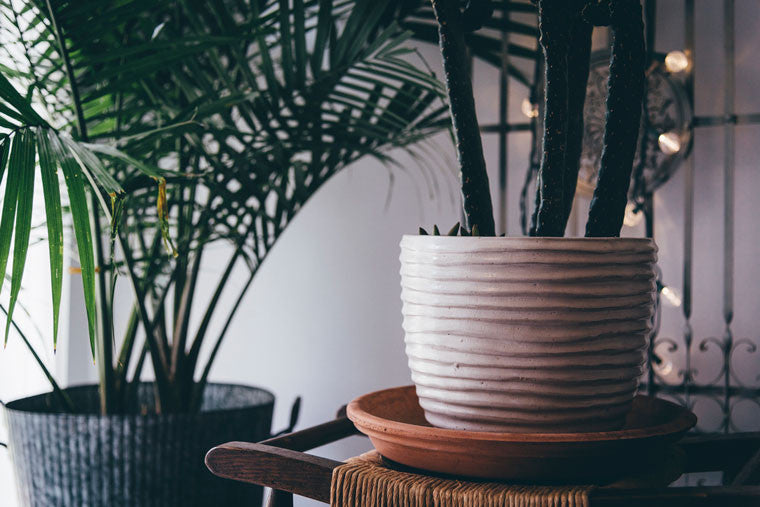News
5 Air Purifying Plants You Must Try Now


If you're living in the 21st century (and by having you read this article, we gather that you do), chances are that the air in your home or office could use some cleaning up...for your own sake. According to the United States Environmental Protection Agency, some of the most common sources of indoor air pollution are ventilation, printers, cleaning products, and even furniture and dry cleaned clothing, causing numerous health problems, with headaches, irritated nose, mental fatigue and low productivity being the least of your problems.
Thankfully, there's more than a couple of these beautiful green things called plants that possess amazing air purifying properties - even NASA says so. Their Clean Air Study confirmed that "plants can play a major role in removal of organic chemicals from indoor air" - such as benzene, trichloroethylene, and formaldehyde, emitted in the air of your home or office by the previously mentioned furniture and other everyday items and products. While all plants contribute to improving your overall health, some of them are more effective than others when it comes to ridding your breathing air of toxins. Here's a list of 5 air purifying plants we always reach for and that you should definitely leave to do their magic on your office desk and kitchen counter:
1. Bamboo Palms
Bamboo Palm is so effective and popular that it keeps crushing all air purifying plant top charts. They're especially praised for ridding the indoor air of formaldehyde and benzene. Bonus: It's extremely instagrammable. And we're all about everything multi-purpose.
Bamboo palm care tips: Water with filtered water when the soil is dry. Do not overwater or let it sit in water. Don't place your Bamboo Palm in direct sunlight or near ventilation, but rather somewhere where it receives bright indirect light.
2. White Dendrobium Orchids
Yes, unfortunately, you cannot take just any orchid and expect it to work magic - not all of them have the same air purifying properties, and the colorful types are generally less powerful. The best one to go for is the Dendrobium Orchid with plain white(!!) blossoms, which takes care of cleansing the air of formaldehyde, chloroform and acetone.
White Dendrobium Orchid care tips: Water about once a week (although it depends of the orchid's growth cycle) - let it dry out between every watering day. It needs strong light (windowsill), but not somewhere it gets direct late afternoon sunlight.
3. Rosemary
Herbs are generally one of the best things you can grow - they look good, they purify your air, they smell good, they have great nutritional content and you can eat them. Is there anything else one could possibly ask for? Rosemary is an especially good air purifying plant during the winter months - it "inhales" carbon dioxide and "exhales" oxygen together with some essential oils for added benefits.
Rosemary care tips: If you grow it in the Smart Garden, you can just forget about it. If you don't, make sure it's placed in a sunny spot and water it when the soil dries out a little bit, but not enough that it wilts.
4. Snake Plant
The Snake Plant purifies the air at night, through removing carbon dioxide and producing oxygen. And, since it's pretty easy to take care of and suits basically any interior, you might notice that it's actually one of the most popular office plants, too.
Snake Plant care tips: Be careful with watering - it's better to underwater it than to overwater. Generally, it needs just approximately 1/4 cup water every few weeks. As for placement, it will survive both in shade and in full sun. Easy huh?
5. Lavender
Lavender is among the most beloved plants in the Click & Grower community, but very few know that it's not only useful for relaxation, but works great as an air purifying plant as well! One of indoor air pollution "types" is odour pollution, and, besides lowering the carbon dioxide levels, Lavender deals with this beautifully...literally.
Lavender care tips: Again - if you're growing Lavender in the Smart Garden, you're good to go. Cut it back once in a while, and enjoy life. If you're going the traditional route, place it somewhere where it'll get at least 8 hours of full sun, and let it dry out between watering days, but not enough that it starts wilting.
------------------
Got questions or have anything to add to the story? Let us know in the comments below or raise a discussion on our community forum!